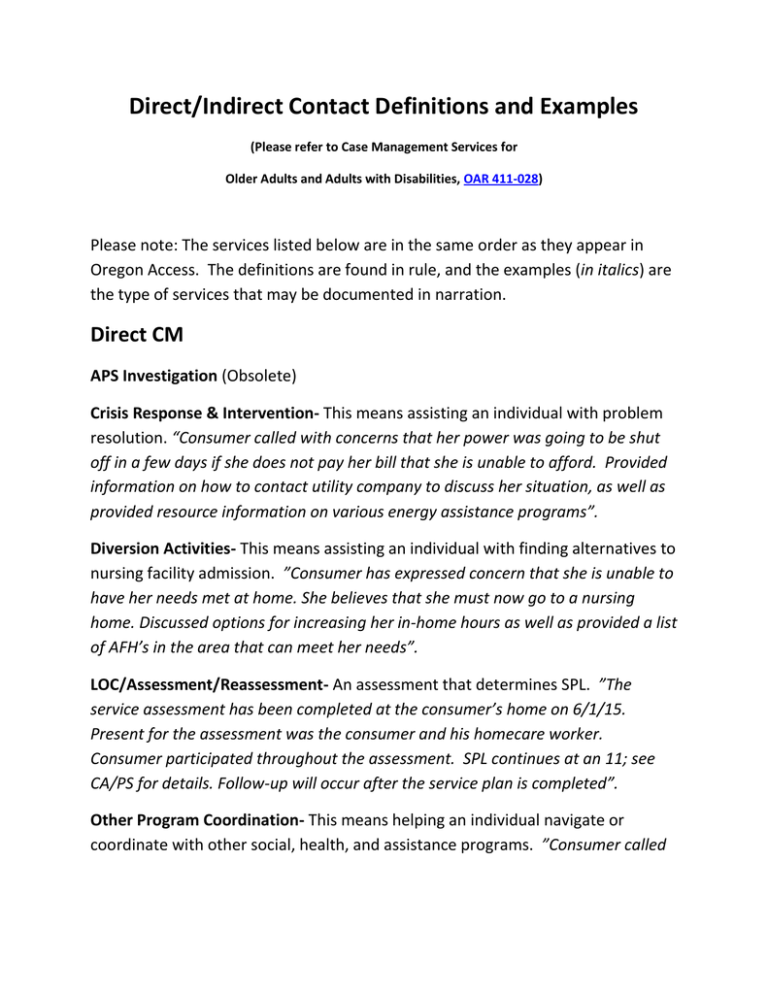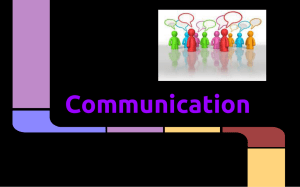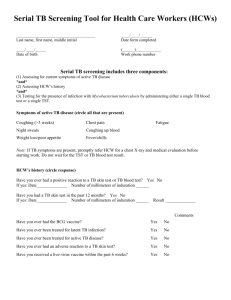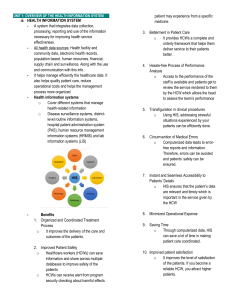Direct/Indirect Contact Definitions and Examples
advertisement

Direct/Indirect Contact Definitions and Examples (Please refer to Case Management Services for Older Adults and Adults with Disabilities, OAR 411-028) Please note: The services listed below are in the same order as they appear in Oregon Access. The definitions are found in rule, and the examples (in italics) are the type of services that may be documented in narration. Direct CM APS Investigation (Obsolete) Crisis Response & Intervention- This means assisting an individual with problem resolution. “Consumer called with concerns that her power was going to be shut off in a few days if she does not pay her bill that she is unable to afford. Provided information on how to contact utility company to discuss her situation, as well as provided resource information on various energy assistance programs”. Diversion Activities- This means assisting an individual with finding alternatives to nursing facility admission. ”Consumer has expressed concern that she is unable to have her needs met at home. She believes that she must now go to a nursing home. Discussed options for increasing her in-home hours as well as provided a list of AFH’s in the area that can meet her needs”. LOC/Assessment/Reassessment- An assessment that determines SPL. ”The service assessment has been completed at the consumer’s home on 6/1/15. Present for the assessment was the consumer and his homecare worker. Consumer participated throughout the assessment. SPL continues at an 11; see CA/PS for details. Follow-up will occur after the service plan is completed”. Other Program Coordination- This means helping an individual navigate or coordinate with other social, health, and assistance programs. ”Consumer called to see if there are any local food box resources. I provided list of places that she can contact”. Risk Assessment/Monitoring- This includes the following: Identifying and documenting risks; working with an individual to eliminate or reduce risks; developing and implementing a risk mitigation plan, monitoring risks over time; and making adjustments to an individual’s service plan as needed. “I called the consumer to follow-up on an identified issue of being unsafe while walking up and down her stairs outside by herself. She stated that she is working on getting bids to have a ramp installed. She also stated that she sometimes calls her neighbor to help her outside when her HCW is unavailable, however would still prefer to walk the stairs on her own. I encouraged her to finish getting the bids, as well as always asking for assistance while walking on her stairs. Documented continued risk concern with a plan to follow up next month”. Svc Options Choice Counseling- This means assisting the individual with understanding all available Medicaid home and community based service options. “I discussed potential placement options that are available to the consumer, which included nearby ALF’s and AFH’s, as well as receiving services in his own home”. Svc Plan Development & Review- This means developing or reviewing the service plan with the individual. This includes determining eligibility for specific services, presenting service options and resources, identifying goals, preferences, and risks, and assessing the cost effectiveness of the service plan. “I discussed the service plan hours with the consumer that she is eligible for and to confirm that this will meet her needs. We also discussed the option of signing up for home delivered meals, which she is interested in”. Service Plan Monitoring- Activities that are necessary to ensure that the service plan is effectively implemented and adequately addresses the needs of the individual. “I called the consumer to confirm that he is satisfied with the care that he is receiving and that if he has concerns. He indicated that he is satisfied with how is care is being received and appreciates the level of care that the HCW provides to him”. Service Provision Issues- This means assisting an individual with problem solving to resolve issues that occur with providers, services, or hours that don’t meet the individual’s needs. “The consumer called with concerns over the HCW not showing up at her scheduled time again. Discussed options such as having the consumer discuss this concern with the HCW or to make a decision in finding a new HCW. She wishes to give the HCW one more in coming during her scheduled times. Consumer agreed to a STEPS referral to learn how to best manage her HCW schedule and concerns”. Indirect CM APS Referral- APS referral including a collateral contact. “Spoke with consumer’s daughter. Based upon what she reported, an APS referral has been completed”. Diversion Activities- This means finding alternatives to nursing facility admission. This does not include transition activities. “Called multiple AFH’s to see who can meet the consumer’s needs in order to provide alternative placements to a nursing facility. I provided this information to the consumer’s daughter for continued follow-up”. Monitoring Svc Plan Implementation- This means either comparing authorized and billed services to ensure that adequate services are being provided, or communicating with a collateral contact to ensure that the service plan is effectively implemented and addressing the needs of the individual. Note that staff that are lower level than a Case Manager are permitted to contact the individual or provider for monitoring purposes, however resulting information must be passed on to the Case Manager. In all instances, all required follow up must occur by the Case Manager. “I reviewed notes that were provided from the LTCCN that was previously authorized. Services are being provided as authorized without any further concern”. “Case aide spoke with the consumer regarding her service plan. The consumer noted that he is thinking that he may need more service plan hours due to a change in condition. The case aide provided the information to the Case Manager, who will follow-up with the consumer”. Other Case Management- Activities not included in any criteria in this section of the rule. The activity must be a service that benefits the individual. “Per a previous discussion that was had with the consumer last month, I mailed out a list of doctors in the area that are currently taking new Medicaid patients”. Other Program Coordination- This means helping collateral contacts navigate or coordinate with other social, health, and assistance programs. ”Spoke with consumer’s daughter regarding information on how to apply for housing assistance. Provided contact information for local housing authority”. Risk Monitoring- Working with a collateral contact to review an individual’s risks, eliminate or reduce risks, and develop and implement a risk mitigation plan. ”With permission, spoke with the consumer’s friend in regards to checking in on the consumer each evening. She agreed to do this”. Svc. Opt. Choice Counsel- This means assisting an individual’s caregiver, family member, or other support person with understanding all available Medicaid home and community based service options. “With permission, I spoke with the consumer’s daughter regarding what kind of services that Assisted Living Facilities typically offer”. Service Provision Issues- This means assisting with problem solving issues that occur with providers, services, or hours that do not meet an individual’s needs. ”I discussed with the homecare worker regarding the tasks that she is authorized for the consumer. Reminded her that she is not authorized to provide any pet or yard care”.



